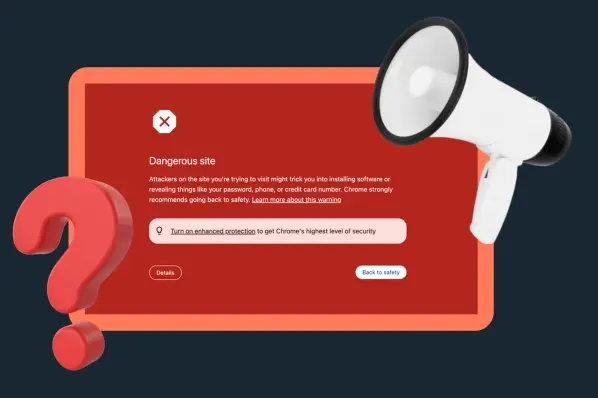But this error can be caused by more than just changing your domain name and improperly configuring the redirects. In this post, I’ll outline what causes “err too many redirects,” how to troubleshoot the error, and, most importantly, how to fix it so you can get your site back up and running.
Table of Contents
- Too Many Redirects Error
- How to Fix Too Many Redirects
- Why does the “too many redirects” error happen?
- Resolving the Too Many Redirects Error
Note that a redirect loop is different from a redirect chain. A redirect chain eventually leads to the destination link, but it’s still undesirable because it can hurt your site’s load time and SEO.
If you’re working on improving your website’s overall performance, use this free Website Grader tool. It’ll help you ensure you minimize redirects.

The “too many redirects” error will appear differently depending on the browser visitors use. Below are some common variations.
Too Many Redirects Chrome

If you see this “err too many redirects” message, it demonstrates that your Chrome browser is struggling with too many redirects and is forced to give up.
Too Many Redirects Safari

This error also occurs with Safari. Here’s the Safari too many redirects error page.
Too Many Redirects Firefox

Last (but not least), here’s what the too many redirects error looks like on Firefox browsers.
This error is likely caused by a configuration error on the website you’re trying to visit. If the website in question is your website, then you must resolve it as soon as possible.
Let’s walk through what might be causing the “err too many redirects” message to appear.
Why does the “too many redirects” error happen?
There are many reasons why a browser might display “err too many redirects.” I asked Shane Larrabee, founder of FatLab Web Support, for his expert tips. He regularly troubleshoots and fixes redirect loops for his customers.
Here are some common reasons the “err too many redirects” message comes up.
1. A misconfigured .htaccess file
Your website’s .htaccess file contains instructions for your server on how to run your website, and it controls things like SSL connections, GZIP compression, and, you guessed it — 301 redirects.
But, as Larrabee warns, “It can get long and complicated over time.” When you’re setting up redirects, whether manually or via a WordPress plugin, “This complexity can lead to conflicts.”
“A classic scenario where the .htaccess file can cause redirect errors is when trying to redirect the www version of a domain to the non-www version (or vice versa),” he says.
“If this redirection is not set up correctly, it can lead to a redirect loop, resulting in the error we’re discussing. Additionally, these www/non-www rules can be defined elsewhere in the server configuration, which means adding a rule to the .htaccess file can create conflicts with existing server settings.”
2. Bad DNS configurations
“Just like with .htaccess, DNS misconfigurations can also cause redirect loops, especially with www/non-www redirects,” explains Larrabee. “If the DNS records for the www and non-www versions aren’t pointing to the same place, a redirect loop can result.”
Other things can go wrong in the DNS configuration, leading to an “err too many redirects,” including:
- Improper Domain Aliasing: “If one domain is set to alias another, but the alias isn’t correctly configured, it can cause a loop where the domain keeps redirecting to itself,” explains Larrabee.
- Incorrect CNAME Records: “Misconfigured CNAME records can cause a hostname to point back to itself or conflict with rules in the .htaccess file, creating a nasty loop,” he says.
- Misconfigured Domain Forwarding: Lastly, Larrabee adds, “Some registrars offer domain forwarding, and it’s not uncommon to see clients set up multiple variations of their domain (.net, .com, .org, etc.) to forward to each other.” This, too, results in a redirect loop.
3. Improper SSL certificate settings
If your website’s URL starts with HTTPS instead of just HTTP, this means that your website uses a security protocol called Secure Sockets Layer (SSL) to encrypt data transfers between a browser requesting a website and the web server delivering that website.
This is a good thing — any website you run should absolutely be SSL-encrypted. However, this protocol can cause a redirect loop in special circumstances.
For example, if you’ve forced SSL on your site without installing an SSL certificate, you’ll likely see the error. That’s because all requests to your hosting server are sent over HTTP, which your server has to redirect to HTTPS repeatedly.
So, it’s important to ensure your SSL certificate is installed correctly and renewed promptly.
4. A misconfigured third-party service or WordPress plugin
Larrabee says it's common for this error to pop up after someone has tried to set up redirects using WordPress plugins or other software or services.
One such case is if you use a proxy server, an intermediary server that directs requests from multiple clients to different servers. It could be responsible for your too many redirects error.
For example, Cloudflare has a Flexible SSL option, which forces requests between clients and Cloudflare to be sent over HTTPS but allows requests between Cloudflare and your origin server to be sent over HTTP.

If that option is enabled but you already have an SSL certificate installed on your server, then your server will redirect these requests to HTTPS and likely cause the too many redirects error.
You can resolve this issue by switching to another encryption mode, like Full or Full (strict).
If your site is on WordPress, then third-party plugins could also be causing the error. Redirect plugins allow you to easily and quickly set up redirects when the permalink of a post or page is changed or when other conditions are met.
However, sometimes, changing the settings of these plugins or updating them can cause a “too many redirects” error to occur.
5. Browser caching
Lastly, a “too many redirects” error can happen because of your browser’s caching.
“We regularly see a scenario where a redirect is changed for one reason or another, but the user has the old redirect cached,” says Larrabee. “The browser commonly caches 301 redirects, and they tend to be very ‘sticky.’”
“This means the redirect error is being stored locally to the user because of their previous history, and their browser cache must be cleared, or enough time has to pass so the browser does a fresh lookup.”
It’s important to realize that this type of redirect error is happening locally — to your browser. “So, a local cache may be causing you the error, but the rest of the world is not experiencing it,” he says.
Troubleshooting Tips for the “Too Many Redirects” Error
Contact your web hosting provider.
“If you are working with a managed host/plan, like FatLab, the first step should be to call your host,” says Larrabee. “Everything we discussed requires technical knowledge, technical troubleshooting skills, and access to server configurations, .htaccess files, CDN settings, etc.”
Managed hosting means your host is supposed to be more hands-on in helping you troubleshoot issues and often will even fix them for you.
However, if you’re not on a managed plan or are with a budget host, you might be stuck DIYing a solution. At the least, the support reps should be able to point you in the right direction, such as by sending you a link to an article in their knowledge base.
Use a redirect checker.
You can also troubleshoot redirect loops using free and paid tools to try to diagnose precisely which URLs are causing the issue.
I really like using httpstatus.io, as it shows the entire chain of redirects (if they exist) along with response headers.

You can also use keyword software Ahrefs’ Site Audit, which will alert you to any redirect loops on your website.

These steps apply to any website, no matter what website builder or content management system (CMS) it uses.
However, if you have a WordPress website, you can take some unique steps to resolve the too many redirects error. Check out How to Fix the Redirect Loop Error in WordPress to learn more.
1. Clear cookies on the redirecting website.
Your first step to fix the too many redirects issue is to clear cookies. Good news: This is the easiest step and may fix the problem. To start, try clearing cookies on the website causing the redirect loop.
The process is similar for any web browser. Here’s how to do it.
Chrome
At the top right, click the Customize icon, then click Settings.

On the left, click Privacy and security.

Click Third-party cookies.

Scroll down and click See all site data and permissions.

Find the website’s name (you can use the search bar). To the right of the site, click the trash can icon.

Safari
Click Safari > Settings.

Click Privacy.
Click Manage Website Data.

Use the search field to find the name of the website causing the redirect loop.
Select the site and click Remove.

Click Done.
Firefox
To clear cookies in Firefox, click Firefox > Preferences.

Click Privacy & Security from the left toolbar.
Scroll to the Cookies and Site Data section.

Click Manage Data.
Find the name of the website causing the redirect loop.

Click Remove Selected.
Click Save Changes.
2. Clear your browser cache.
If clearing cookies on the specific website causing the redirect loop doesn’t work, try clearing your whole browser cache. The process is similar for any web browser. Here’s how.
Chrome
At the top right, click the Customize icon, then click Settings.

Click Privacy and security from the left toolbar.
Click Delete browsing data.

Set your time range, then click Delete data.

Safari
Click Safari > Settings.

Click Privacy.
Click Manage Website Data.

Click Remove All.
Click Remove Now.

Click Done.
Firefox
To clear the cache in Firefox, click Firefox > Preferences.
Click Privacy & Security from the left toolbar.
Scroll to the Cookies and Site Data section.

Click Clear Data.
“Cookies and site data” and “Temporary cached files and pages” should both be checkmarked by default. Click Clear.

3. Ensure your SSL Certificate is installed correctly.
If you’ve cleared your cookies and cache and are still getting the too many redirects error, then the issue could be your HTTPS settings.
Use an online tool like SSL Checker to test that your SSL configuration is installed, valid, and trusted.

4. Evaluate your third-party services and plugins.
If you’ve ruled out your cookies, cache, and HTTPS settings from causing the too many redirects error on your site, then check any third-party services you use.
To see if this is the issue on your site, try disabling your plugins. A good way to test this is by deactivating all your plugins in bulk and then reactivating them individually to isolate the culprit. Here are the steps:
Log into your WordPress admin dashboard.
Select Plugins > Installed Plugins.
Check the box next to Plugin to select all your plugins.

Choose Deactivate from the Bulk actions dropdown menu, then click Apply.

Refresh your site.
If you no longer see the too many redirects error, start activating each plugin one by one and reloading your website after each activation to identify the faulty plugin.
You may need to contact the plugin developer to resolve the issue or find an alternative to use on your site. There are so many plugins out there that do the same thing — so you can probably find one that won’t cause problems.
5. Reset your htaccess file.
If none of the steps above have resolved the too many redirects error, then the problem is likely how redirects are set up on your server.
To double-check that, you’ll need to access your hypertext access file, or the .htaccess file, rename it, and create a new one. To do so, you can use a file manager like cPanel or via FTP client. The following steps are for cPanel specifically.
Go to File Manager and select your .htaccess file.
Right-click to rename it .htaccess_old. This is now your backup file.
Go to public_html.
Create a new text file and name it .htaccess.
Copy and paste the following code into the file:
<IfModule mod_rewrite.c>
RewriteEngine On
RewriteBase /
RewriteRule ^index\.php$ - [L]
RewriteCond %{REQUEST_FILENAME} !-f
RewriteCond %{REQUEST_FILENAME} !-d
RewriteRule . /index.php [L]
</IfModule>
You can now save and exit File Manager.
This will reset the .htaccess file to its default settings so you can now save and refresh your site. If this hasn’t solved the too many redirects error, you can restore the backup .htaccess file.
6. Contact your hosting provider.
If none of the steps above resolve your issue, it's time to try contacting your hosting provider (if you haven’t already).
If you let them know you’re still experiencing a too many redirects error that's impacting your website performance, they may be able to help you track down what the exact cause is — or even fix it for you.
Resolving the Too Many Redirects Error
There’s no foolproof method for preventing a too many redirects error, but you don’t need to live in fear of it like I did.
By understanding what causes a redirect loop and knowing the many ways you can fix it, you’ll ensure visitors can continue browsing, navigating, and converting on your site with ease.
Editor's note: This post was originally published in October 2021 and has been updated for comprehensiveness.
Website Performance


.png)






![7 Site Performance Challenges That Will Hold Businesses Back [Data + Expert Predictions]](https://53.fs1.hubspotusercontent-na1.net/hubfs/53/how-to-improve-lcp-1-20250121-126295.webp)


